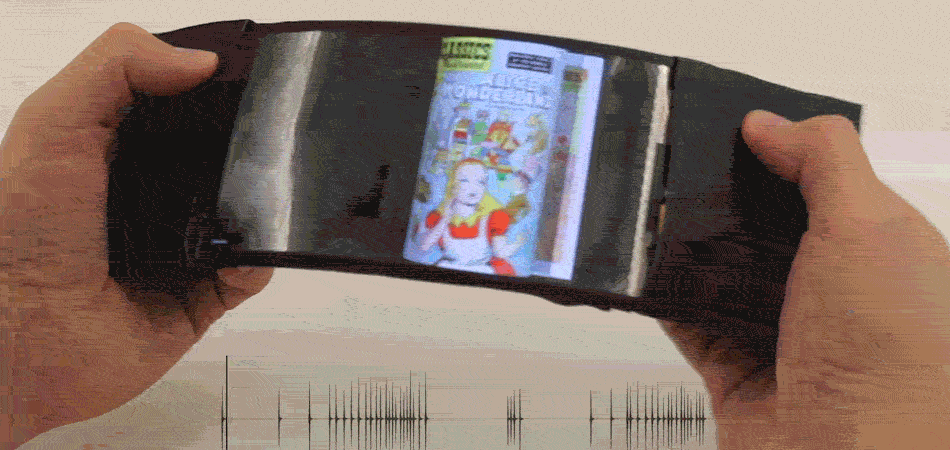Flexible smartphones may be coming sooner than you think
With bend sensors and haptic feedback, a new prototype acts just like a book.

Companies have been promising us futuristic, paper-like displays since forever, but so far we remain unimpressed. The ReFlex, a prototype flexible smartphone from Queens University is tantalizingly close to what we've been waiting for, though. To build it, the team mated a 720p flexible LG OLED display to bend sensors and haptic feedback motors. Powering the device is an Android 4.4-powered board, complete with custom drivers, placed in the non-flexible part beside the display.
Bending the device will flip through the pages of an e-book, and the more you bend, the faster it flips. In another example, you can play Angry Birds by bending the device to slingshot a bird, with the rubber bend stretching tighter as you flex it. Thanks to the voice-coil haptic motors, you can precisely "feel" the pages flipping or the Angry Birds slingshot stretching out for a launch. The haptics also allow "eyes-free navigation, making it easier for users to keep track of where [you] are in a document," according to Queens Media Lab director Roel Vertegaal.
The researchers plan to show off the device at a human-computer interaction conference today in the Netherlands, and believe commercial devices will be available within five years. Based on the convincing prototype, it doesn't seem impossible that the tech could arrive even sooner.
